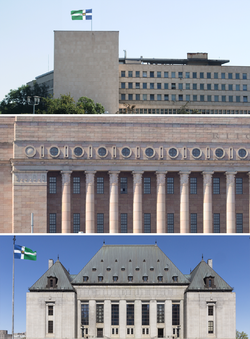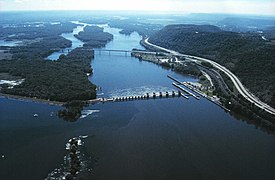Orenstia (Old country)
Orenstian People's Republic Orenztyas Rahvavabariik (Orenstian) | |
|---|---|
Motto: L'union fait la force "Unity makes strength" | |
| Template:Map caption | |
| Location | Orenstia (dark green) |
| Capital and largest city | Versend |
| Official languages | Orenstian |
| Ethnic groups |
|
| Demonym(s) | Orenstian |
| Government | Federal parliamentary constitutional republic |
| Marina Kukk | |
• Premier | Kristjan Aavik |
| Nanci Palosii | |
| Legislature | Parliament |
| Senat | |
| State Assembly | |
| Formation | |
• Orenstian Republic formed | 1857 |
• Constitution adopted | 1923 |
• August Coup | 1955 |
• Current democracy | 1977 |
| Area | |
• Total | 1,665,077 km2 (642,890 sq mi) |
| Population | |
• Estimate | 311,432,910 |
• Density | 187.03/km2 (484.4/sq mi) |
| GDP (nominal) | estimate |
• Total | $9.79 trillion |
• Per capita | $31,452 |
| Gini | 27.1 low |
| HDI | very high |
| Currency | Orenstian Tolar (OTR) |
| Time zone | UTC+1 |
| Driving side | right |
| Internet TLD | .or |
The Orenstian People's Republic, commonly known as Orenstia, is a sovereign state located in northeast Levantia. Covering an area of 1,665,077 km², the republic is bordered by the Deric States to the south, Fiannria to the north, and the Levantine Ocean to the east. The nation is divided into 12 provinces and two autonomous areas - with its capital and largest city being Versend. Orenstia is one of the few extant liberal democracies in Levantia proper.
Although human history on eastern Levantia stretches for millenia, modern Orenstia was founded in 1857 following the union of four smaller states into the unified Orenstian Republic. It constituted the first union between the Uralic peoples of Levantia, following centuries of influence from the Latin states to the south, and Fiannria from the north. A liberal democratic constitution was adopted in 1923 following the Versend Uprising. The nation would remain neutral and stable throughout the Great War, although a coup d'état in 1955 would overthrow the democratically elected socialist government in favour of a right-wing military junta which would last 22 years. The regime ended in 1977, and was succeeded by a reinstated multi-party democracy.
Today, Orenstia is a secular federal parliamentary constitutional republic. It is a regional power with a growing economy and a highly developed market. It is one of the world's largest exporters and importers. Orenstia is a developed country, maintaining a strong mixed economy with high levels of economic freedom and state-provided social security, welfare, healthcare, a minimum basic income and education services. Orenstia is also a member of numerous international organizations such as the League of Nations and the Falksburg Forum, shares close relations with both Levantine and Sarpedonian states, and participates in Operation Khyzer Rhykh.
Etymology
The word Orenstia comes from the old Uralic word osta, meaning port, or land of the eastern port. The Orenstian language national title, rahvavabariik, is officially translated and rendered as people’s republic, although it can be commonly understood as to mean state of the masses or people’s commonwealth.
History
Background
Human settlement of the area now known as modern Orenstia began 300,000 years ago. Uralic society originally began on the southern banks of the Ural River in what is now northern Varska. By the conclusion of the region's prehistoric period, much of eastern Levantia, from the Vandarch to Varska, was dominated by Uralic societies. These polities were largely divided and frequently engaged in conflict with one another until 400BC, when a mass Latinic invasion from the south would push the peoples of the many Uralic polities into what is now modern-day Orenstia.
From the dawn of the first century onwards, the many Uralic polities were ruled by client kings loyal to Great Levantia, facilitating the spread of Latin systems, culture and religion, with Christianity becoming prevalent across the peninsula by the fall of Great Levantia. In 753, the now independent states of the peninsula were conquered by Conchobar I of the Holy Levantine Empire. Reorganized into four stem duchies corresponding to rough ethnic boundaries, the land of Orenstia was incorporated fully into the Holy Levantine Empire.
Early republic
The concept of Orenstia as a united Uralic state would emerge again in the early 1800s through the Felszian Movement. Sparked by a wave of nationalism spreading across the continent and with imperial influence declining, the Felszian Movement called for the union of the Uralic polities into one, independent state.
The nations unite into the Orenstian Republic, a federal state
New colonialism in Audonia sometime here, golden age of Orenstia.
State-General Stephen dies, things go to shit.
New State-General oppresses the people.
20th century
Versend Uprising.
Democratic constitution.
Neutrality or some shit in the GW, then:
Mi general, Augusto Pinochet! Le saluda su pueblo tan querido Fue un estadista, un gran libertador Fue presidente de nuestra gran nación Mi general, Augusto Pinochet Está su imagen en cada unidad Hoy sus soldados, marchan contentos Con gallardía, con gran lealtad Hoy sus soldados, marchan contentos Con gallardía, con gran lealtad Mi general, Augusto Pinochet Usted es el nuevo Padre de la patria Está su nombre en la história de Chile Como lo ha sido Don Bernardo O'Higgings Se le recuerda con gran cariño Le agradecemos con el corazón Usted es ejemplo al mundo entero Un gran orgullo de los chilenos Usted es ejemplo al mundo entero Un gran orgullo de los chilenos Mi general, Augusto Pinochet Usted es el nuevo Padre de la patria Está su nombre en la história de Chile Como lo ha sido Don Bernardo O'Higgings Se le recuerda con gran cariño Le agradecemos con el corazón Usted es ejemplo al mundo entero Un gran orgullo de los chilenos Usted es ejemplo al mundo entero Un gran orgullo de los chilenos ¡Viva por siempre, mi general! ¡Mi general, Augusto Pinochet!
Contemporary era
A brief 5-year government of national unity was formed following the deposition of the military dictatorship. The government, a coalition between the left-wing Party of Democratic Socialism, the right-wing National Confederation of the Right and the Orenstian Armed Forces, led great reforms in both the economy and in society. The government began to fracture in early 1981, however, as disputes on the depth of reform broke out between the progressive PDS and the nationalist Confederation.
The contentious 1982 federal elections, marked with bouts of violence between left and right-wing groups, led to inconclusive results. However, the failure of the Confederation to gain the support of the Progressive Conservatives, who unexpectedly joined in the new left-wing United Front, led to a slight UF majority and the premiership of democratic socialist Jaanus Saar. Declaring the premiership “illegitimate”, elements of the Confederation, along with parts of the Orenstian Army, attempted a military coup in June of 1982. Heavy street fighting broke out between loyalist and nationalist forces in the capital of Versend; although the newly reformed military, the Federal People’s Army, combined with the lack of presidential and public support for the coup, would end it within a week.
The peaceful transition of power in 1990 between Jaanus Saar and his broadly conservative successor, Urmet Part, was considered proof that Orenstia had achieved long-sought political stability.
Since 1986, Orenstia has developed into one of Levantia’s sole stable liberal democracies. Political, economic and social reforms first instituted by the national unity government have continued. The corporatist model of the dictatorship has been discarded in favour of a market capitalist system, and full economic, political and social rights were given to women and minority populations in 1983. Since the early 2000s, Orenstia has become an active member of the Levantine and global communities, participating in Operation Khyzer Rhykh and forming the Falksburg Forum with four other countries in 2019.
Politics and government

The Orenstian People's Republic is a federal parliamentary constitutional republic, comprised of twelve provinces and two autonomous areas in a symmetric federation. It is a representative democracy with traditions of social justice and egalitarianism. Although a system of federal rule was established following the deposition of the military dictatorship, government power still de-facto remains centralized in the capital of Versend.
Federal legislative power is vested in the Parliament of Orenstia, consisting of the State Assembly and the Senat (Senate). The 677 seats of the State Assembly are elected through universal suffrage with a system of proportional representation, while the 24 members of the non-partisan Senat are appointed by and represent the governments of the 12 provinces.
The President of Orenstia serves as the head of state, and is primarily vested with largely ceremonial and representative duties. They are elected by popular vote and ceremonially approved by the Senat for a term of 4 years. Executive power, however, is vested in the collective head of government, the National Council. The Council is appointed by the President after being elected by the party or coalition most able to command the confidence of the majority of the State Assembly. The Premier and their cabinet, the Council of State, exercises executive power.
Law
The supreme law of Orenstia is the 1977 Constitution, which establishes a federal multi-party democracy. It guarantees fundamental rights and freedoms that cannot be overruled or amended by any government, although a notwithstanding clause allows the Senat and the Council of State (with unanimous consent from the executives of at-least 6 of the provinces) to suspend certain sections of the constitution for up to 6 months. It is one of the sole liberal democratic constitutions to mention socialism, with the vague stated goal of the republic being to “open up the path towards a democratic socialist society”.
The nation's judiciary, consisting of the Federation Court and the Constitutional Court, plays an important role in federal governance. The Constitutional Court maintains the power to overturn both executive and legislative decisions, while the Federation Court plays a large role in interpreting legislation. Each province nominates one justice to each of the two courts, with their nominations subject to approval by the Council of State.
A common law prevails in all parts of Orenstia, with criminal law a responsibility of the federal government and is uniform nationwide. Law enforcement, however, remains the sole responsibility of provincial governments, and are conducted by municipal and provincial police forces.
Politics
At a federal level, Orenstia is a representative democracy with a moderate political culture of social justice and equality. Politics in Orenstia has been dominated by the former United Front parties, namely the Party of Democratic Socialism, the Progressive Conservatives and the smaller Social Democratic Party. Since 1982, every Premier of Orenstia has been a member of these three big tent parties, which practice a form of brokerage politics.
Since the early 2010s, however, a number of smaller parties such as the Orenstian Liberal Democrats, the Green Party and the Marxist International Workers of Orenstia have gained representation in the State Assembly. In 2016, the right-wing Orenstian National Party, a self-declared successor of the National Confederation, gained representation for the first time.
Federal subjects
Internally, the Orenstian state is divided into twelve provinces and two autonomous areas. Although in theory each province is granted wide-reaching authority, power remains heavily centralized with the federal government in the capital of Versend. Each province is governed by a parliamentary system similar to that of the federal system. Autonomous areas are governed directly by the federal government.
In increasing order of population, the provinces are:
Give me a fucking break ill get it done soon
Foreign relations
Since the fall of single-party rule, Orenstia’s international relations have been based on Article 16 of the 1977 Constitution: establishing self-determination, diplomacy and cooperation as the fundamental principles on how the Orenstian state should interacts with other countries and organizations. As such, it maintains diplomatic relations with every League of Nations member state. According to the Constitution, the President of Orenstia acts as the nation’s chief diplomat, although the task commonly falls to the Premier of Orenstia. Today, Orenstia's foreign policy is largely based on the guidelines laid out by the New Foreign Policy for the 21st Century, manifested in the nation’s long-term Look West, Act East policy.
Military

The Federal People's Army is the military of the Orenstian People’s Republic. It is divided into the Federal People's Ground Forces, the Federal People's Navy, the Federal People's Air Force, the Federal People's Strategic Forces and the People's National Guard. Defence spending makes up 2% of the Orenstian gross domestic product. As of 2018, the military comprises almost a million active duty servicemembers, with over 3 million in reserve. It is mandatory for all citizens 18-35 to be drafted into the armed forces (or the national services) for 12 to 15 months.
Although greatly decreased since the conclusion of the Occidental Cold War, Orenstia continues to maintain one of the largest military forces on the continent. The nation maintains a stockpile of nuclear weapons, a growing force of strategic bombers and a major tank force. In recent years, naval spending has also increased; leading to the creation of a large surface navy and a growing fleet of nuclear submarines. The country has a large and fully indigenous arms industry, with relatively little imports. It has been one of the world's top supplier of arms since 2015.
Geography
-
The Krtìn Resevoir, the largest manmade lake in the world.
-
Much of Orenstia is covered by the Eastern Levantine Plain.
-
The Sopron range dominates the country's west.
-
The Ural River, which splits the nation.
Situated at the eastern end of Levantia, Orenstia is located on the Orenstian Peninsula and the Eastern Levantine Plain. The country totals 1,665,077 kilometres squared, making it the 11th largest country in the world. It is largely dominated by a flat, temperate plain which stretches the entire height of the nation. The most common division of the country is across the Ural River. The Ural flows through the centre of Orenstia, with almost the entirety of the nation laying in its drainage basin. Western Orenstia is largely dominated by the Sopron Range, a primarily hilly region varied by low mountains. The nation's highest point is contained within, at 912m above sea level. A variety of rivers also originate from the area. These rivers comprise the largest natural features in the southern provinces.
Orenstia is situated in the north of the temperate climate zone, with the east of the country in the transition area between maritime and continental climates. It has four seasons of approximately equal length. Average temperatures in the north ranges from 16.1°C in July to -6°C in February, while temperatures along the southern coast of the nation range from 21.9°C in July to 1°C in February. Snow covers much of Orenstia from mid-December to early March.
Economy
Demographics
With a population of 311.4 million in 2018 and with an expected population of 312.8 million by 2019, Orenstia is the 4th largest nation on Levantia, and the 14th largest nation in the world. Its population density stands at 187.03 per kilometres squared, with an overall life expectancy of 77.4 years. Since the 2010s, Orenstia's population growth rate has slowed to less than 1%. As such, the nation is considered to be in stage 4 of demographic transition. With both birth and death rates low, the government has turned to enacting a variety of pro-natalist policies, although the main driver of population growth today is the nation's nascent immigration programs.
A majority of the nation's urban centres are aligned along rivers, with population centres primarily situated along the Ural, Krtìn and Vantaa rivers. As well, a rapidly growing urbanization rate has inflated the urban population greatly; with Orenstia now home to two megacities.
Largest cities
Template:Largest cities of Orenstia
Ethnic groups
Citizenship
Orenstian citizenship is typically obtained by birth in Orenstia (jus soli), or when at least one biological or adoptive parent is an Orenstian citizen born in Orenstia or is naturalized (jus sanguinis). It is also granted to immigrants who have resided in the country for at least 4 years. Orenstia does not restrict dual citizenship, although citizens are recommended to travel abroad on their Orenstian passport.
Language
Religion
| Affiliation | % of population | |
|---|---|---|
| Irreligion | Template:Bartable | |
| Atheism | Template:Bartable | |
| Agnosticism | Template:Bartable | |
| Christianity | Template:Bartable | |
| Levantine Catholicism | Template:Bartable | |
| Protestantism | Template:Bartable | |
| Other | Template:Bartable | |
| Don't know or refused answer | Template:Bartable | |
Orenstia is a secular state with a constitutionally defined seperation of church and state in all matters, including education. Religious congregations in Orenstia have been considered private organizations by the federal government since 1952, and have lost their status as charities. This has led to a decline of religious institutions nation-wide, with a majority of the religious population practicing outside of institutions. Although state atheism was praticed during single-party rule, freedom of religion and religious pluralism are now protected under the Socialist Constitution.
Orenstia remains one of the least religious nations in the world, with over 65% of the population not declaring any religion or faith, with a national percentage of convinced atheists being over 22%. According to the 2010 census, 34% of the population stated that they had "no religion", 21% stated that they were Levantine Catholic, 3% stated they were Protestant, with the remaining 10% following other faiths and religions. 32% of the population did not answer the question. Out of the religious population, 67% view religion as being "unimportant" in their lives.







